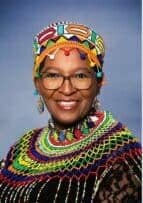Member of the Executive Council (MEC) for Social Development in Gauteng, Faith Mazibuko, has taken a stance against child abuse during National Child Protection Week.
In a society where children continue to bear the brunt of abuse, neglect, exploitation, and abandonment, Child and Youth Care Centres (CYCCs) stand as crucial sanctuaries of hope and healing.
These centres are more than just shelters; they are structured, rehabilitative spaces where the rights, dignity, and potential of every child are protected and nurtured.
In Gauteng, the Department of Social Development plays a crucial role in ensuring that these facilities not only exist but also deliver quality care in line with the Children’s Act 38 of 2005.
The Act defines CYCCs as facilities providing residential care to more than six children outside their family environment, using tailored programmes to meet individual needs.
This umbrella includes children’s homes, temporary safe care reform schools, schools of industries and secure care. While the environments may differ, the goal remains the same: to protect and rebuild lives.
A home for the voiceless
Children placed in CYCCs are not there by chance.
These are children who have endured unimaginable circumstances, abandonment, abuse, neglect, exploitation, or trauma and those who may conflict with the law.
“Some come from families that can no longer control destructive behaviour; others are victims of substance abuse, trafficking, or domestic violence.
“Whatever the reason, these centres are a last line of defence to prevent a life derailed from turning into a life destroyed,” said Mazibuko.
“Every placement is done through a court order to safeguard the child’s rights and ensure due process. Importantly, only registered CYCCs are legally permitted to accommodate children, another safeguard that speaks to the Department of Social Development’s commitment to protecting children from further harm.”
Gauteng’s approach
In Gauteng, the DSD not only facilitates placement into CYCCs, but also accredits, governs, supports, and monitors these facilities to ensure that children receive comprehensive services.
“The department requires rigorous registration processes that include various municipal compliance permits, health inspections, staff credentials, food safety, emergency preparedness, and clearly outlined developmental and therapeutic programmes,” said Mazibuko.
“Once inside a CYCC, children receive far more than a roof over their heads. The department ensures that every registered CYCC offers structured therapeutic, recreational, and developmental programmes.
“From trauma counselling and play therapy to life skills training, substance abuse prevention, and even pottery or beadwork, these activities are designed to rebuild trust, confidence, and a sense of self-worth,” said the MEC.
One of the most commendable features of Gauteng’s CYCC programmes is the focus on independent living programmes, particularly for older children transitioning out of care. Preparing them to re-enter society with practical skills, emotional resilience, and social competence speaks volumes about the department’s long-term commitment to these young people.
“Recreational and educational programmes, like sports, drama, Indigenous games, and victim empowerment sessions, contribute to holistic development.
“These aren’t luxuries; they are critical in restoring a sense of normalcy, purpose, and joy in the lives of children who have known very little of it,” said Mazibuko.
The Department of Social Development’s role doesn’t end at registration or programme design. It remains a constant presence, providing oversight, offering support, and ensuring that every CYCC operates with integrity and compliance.
“Contact points across all regions in Gauteng emphasise the Department’s accessibility and willingness to respond to community and professional queries alike,” said Mazibuko.
Call to action
The Gauteng Department of Social Development maintains a database of 150 accredited CYCCs, of which 141 are NPO-run and nine are Government-run. In some CYCCs, the department subsidises administration, social work and child and youth care posts.
“The existence and effectiveness of CYCCs should not be the sole concern of government Departments or Social Workers, it is a societal responsibility.
“Communities, civil society organisations, and even individuals have a role to play in reporting suspected abuse, advocating for children’s rights, supporting CYCC initiatives and reporting unregistered centres,” said Mazibuko.
“As South Africa continues to grapple with high rates of child abuse and neglect, CYCCs are an indispensable component of the national child protection strategy. They are not just buildings; they are bridges. Bridges to safety, healing, and a better future.
“Let us recognise and support the life-changing work happening in CYCCs across Gauteng and ensure that every child, regardless of their past, has a chance at a dignified, hopeful future.
“As we observe Child Protection Month and Week, let us also take a moment to appreciate the work done at these centres in the care and protection of children,” said Mazibuko.
At Caxton, we employ humans to generate daily fresh news, not AI intervention. Happy reading!
Stay in the know. Download the Caxton Local News Network App here.
